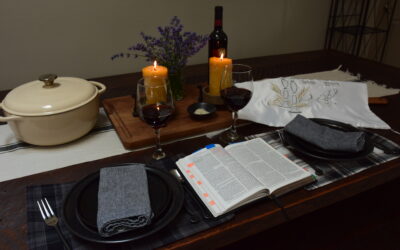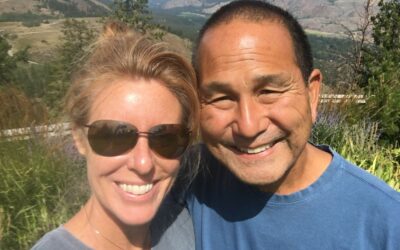When I was a non-Christian, I avoided conflict at all costs. It terrified me, then made me numb, and caused me to become defensive. It made me doubt myself. When things got tough with other humans, I would borrow a chapter from the military’s playbook: survive, evade, resist, and finally escape. Instead of dealing with conflict in a healthy and productive way, I simply ran. It seems a little contradictory that now, as a Christian, I am learning the art of conflict.
It is true that when I took a job in ministry I had false notions of how peaceful and joyful my days would be. Imagine my disappointment when I learned that all humans–both Christians and non-Christians alike–are imperfect. Flawed. Struggling with how to do better and be better. Fighting the lies that plague us all: “God doesn’t really love me,” and “I am not good enough,” or even “I am better than so-and-so,” and “Everyone else has it all figured out,” or “I have to compete (and win) to make a difference.” All of these are tactics of the enemy to beat us down and to divide us. He will tempt us with these lies, and he is not partial. He lies to create rifts between those of the same faith, between those of differing beliefs, and between believers and non-believers. He thrives on division, because he knows that we are weaker when we are alone. But in the words of the faithful and inspirational Steve Martin who recently passed away from ALS:
“Don’t listen to Satan! Satan will lie to you. He will tell you things that are not true about God. He will tell you things that are not true about others. He will tell you things that are not true about yourself.”
When you find yourself feeling anything but at peace, anything but joyful, anything but loving or lovable, please stop and remember: “Every good gift and every perfect gift is from above, coming down from the Father of lights, with whom there is no variation or shadow due to change” (James 1: 17). In an ever and rapidly changing world, God does not change. The bad stuff you feel does not come from God; it seeps and oozes from the places where God is not. Where God is absent, the enemy will thrive, and the enemy (Satan) “was a murderer from the beginning, and does not stand on truth, because there is no truth in him. When he lies, he speaks out of his own character, for he is a liar and the father of lies” (John 8:44).
In these moments, take a beat. Take a breath. Say a prayer. God’s got you and He has a different way–a means to resolution and restoration that will lead to unity and peace rather than mere survival, evasion, oppression, domination, or avoidance. We live in a broken world, but we do not have to play by its rules, because Jesus has overcome the world (John 16:33).
So how does this help me deal with conflict?
I sat in my office yesterday morning, steaming mug of coffee, Bible, and pen in hand, trying to sort out an impending conflict. I have a talented team of leaders who possess a range of gifts and callings but who also, as humans, struggle with the lies of the enemy. Like me, they are trying to navigate a difficult world that presents very real demands and has high expectations. We have been programmed by our culture to compete, but as Christians our first and last responsibility is obedience to the teachings of Jesus and to the God we serve. Competition, however subtle, breeds fear. And fear gives birth to conflict. While I used to avoid conflict, I now see that in this broken world, conflict is both inevitable and an opportunity to strengthen and prove our faith. I slowly found my way to 1 Corinthians 12 and 13. I won’t quote the entire two chapters here, but I encourage you to go read them on your own. Here is the gist:
God created all of us–me and the person I am having negative feelings about. We were both created on purpose for a purpose. If we are both believers, especially if we are both working in the same ministry, then surely God means for us to pool our gifts and create something amazing for others that points them to Jesus.
We cannot do it on our own. Despite what our world demands of us, we were not meant to be all things to all people. We need each other. We need to share the load. When we take it all on alone we place unreasonable expectations on ourselves that are not from God. Rather than compete, we need to remember that God created us to be one body, working and moving in unity and strength–His people. We are stronger when we are together.
All the wisdom, education, talents, gifts, faith, and generosity in the world mean nothing if we do not have love, accept love, and give love to one another. Period. End of story (1 Corinthians 13).
Despite these truths, not everyone will respond with love to our love. Certainly not everyone will respond with love to situations of conflict. In fact, Paul acknowledges this in his letter to the Romans: “If possible, so far as it depends on you, live peaceably with all (12:18). God gave every single one of us free will, which means we are all free to respond to love (and conflict) with competition, aggression, and violence, anger, hostility, pain, insecurity, avoidance, or even retreat. We are free to do that. But as believers, we must remember that love is the greatest commandment, and we ought always to begin, plot a course through, and end there. Even if it’s a bumpy ride.




0 Comments